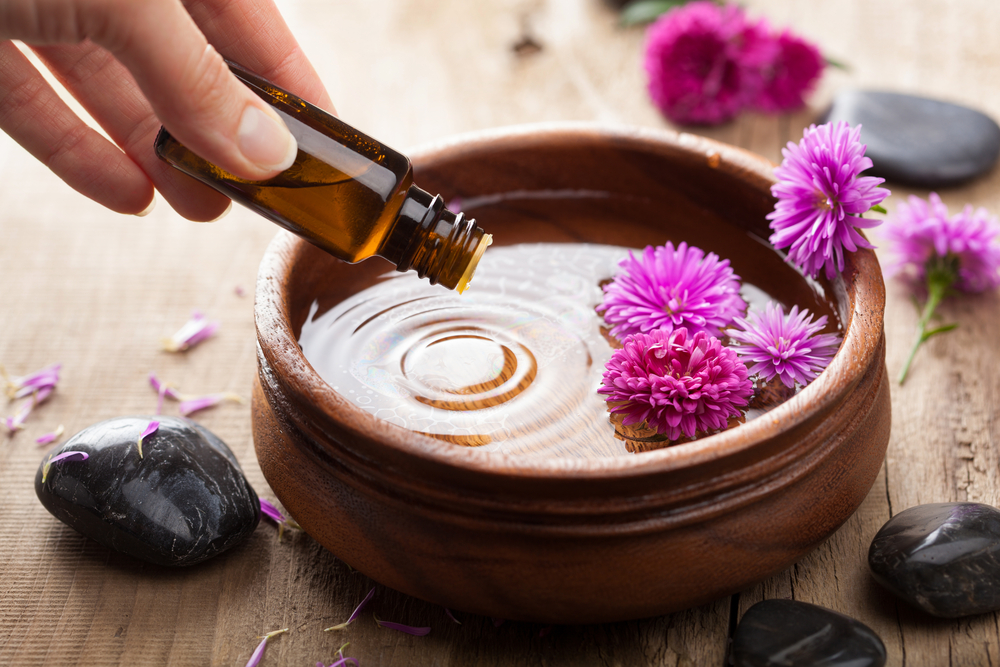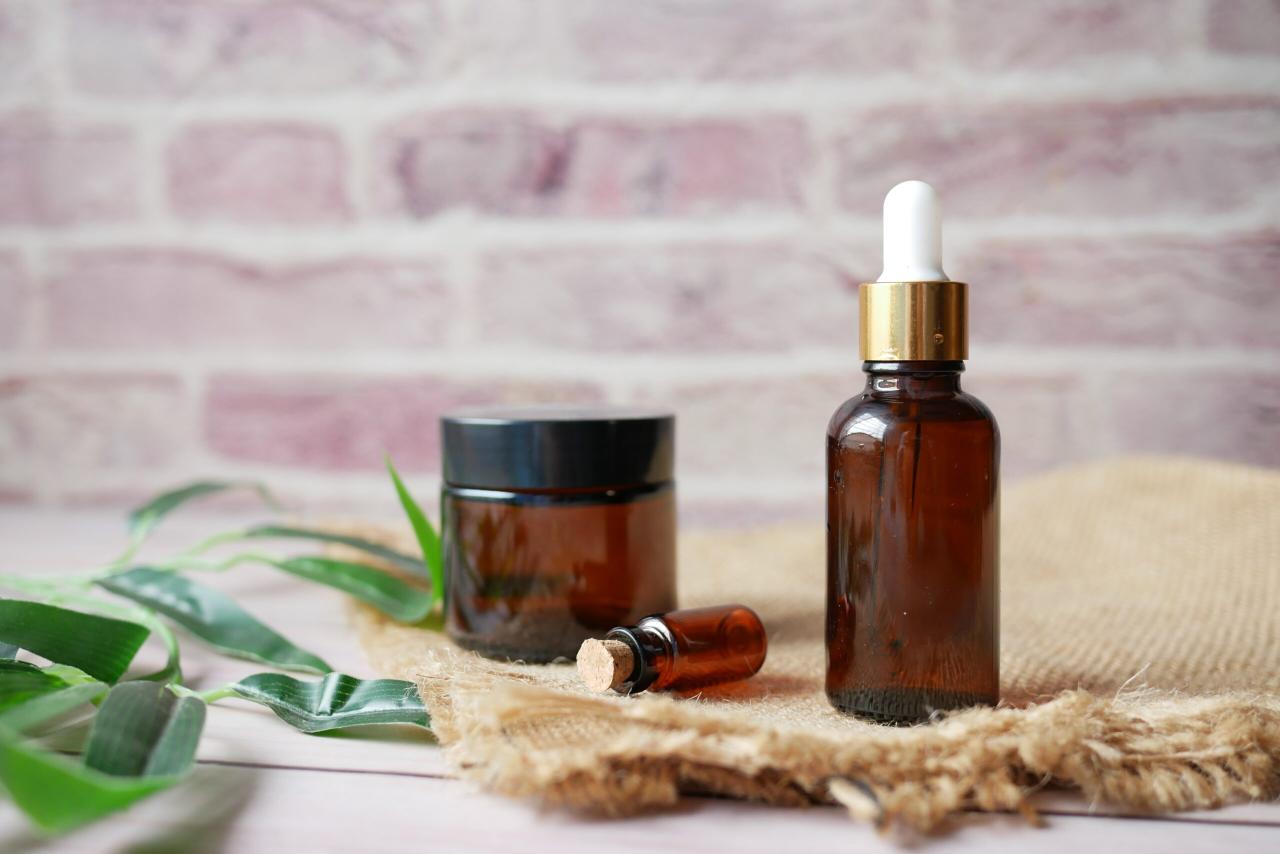In the realm of natural remedies, aromatherapy emerges as a gentle yet potent force in combating anxiety. Essential oils, extracted from the heart of fragrant plants, possess remarkable calming properties that can soothe the mind and ease the burden of anxious thoughts.
Join us as we delve into the science-backed benefits of aromatherapy for anxiety, discover effective techniques for incorporating it into your life, and uncover personal stories that attest to its transformative power.
Essential Oils and Their Calming Effects
Aromatherapy, the practice of using essential oils for therapeutic purposes, has gained widespread recognition for its potential to alleviate anxiety. Essential oils are concentrated plant extracts that contain volatile compounds, which interact with the olfactory system and limbic system, areas of the brain associated with emotions and stress response.
Numerous essential oils possess calming and anxiolytic properties. Some of the most commonly used oils include:
- Lavender (Lavandula angustifolia): Known for its relaxing and sleep-promoting effects, lavender oil has been shown to reduce anxiety and improve sleep quality.
- Chamomile (Matricaria recutita): Chamomile oil exhibits anti-inflammatory and sedative properties, making it effective in reducing stress and promoting relaxation.
- Bergamot (Citrus bergamia): Bergamot oil has mood-boosting and calming effects, and has been used traditionally to treat anxiety and depression.
- Ylang-ylang (Cananga odorata): Ylang-ylang oil has sedative and antidepressant properties, and is known to promote relaxation and reduce anxiety.
- Clary sage (Salvia sclarea): Clary sage oil has hormonal balancing and calming effects, and is often used to alleviate anxiety and stress during menstruation.
Essential oils can be used for aromatherapy through various methods:
- Inhalation:Inhaling essential oils through a diffuser, humidifier, or nasal inhaler allows the volatile compounds to enter the olfactory system and directly affect the brain.
- Topical application:Essential oils can be diluted in a carrier oil (such as coconut oil or jojoba oil) and applied to the skin. This method allows for localized absorption and can be beneficial for reducing muscle tension and promoting relaxation.
- Diffusion:Diffusing essential oils into the air using a diffuser or humidifier disperses the volatile compounds throughout the room, creating a calming and relaxing atmosphere.
While aromatherapy can be beneficial for anxiety, it is important to note that essential oils are potent substances and should be used with caution. Individuals with allergies or underlying health conditions should consult a healthcare professional before using essential oils for aromatherapy.
It is also crucial to use essential oils that are pure and of high quality to ensure safety and effectiveness.
Scientific Evidence for Aromatherapy in Anxiety Management

A growing body of scientific research supports the effectiveness of aromatherapy for anxiety management. Numerous studies have demonstrated the positive effects of essential oils on reducing anxiety symptoms, both in clinical and non-clinical populations.
Key Studies
One notable study conducted by Diego et al. (2008) found that inhaling lavender oil significantly reduced anxiety levels in patients undergoing dental procedures. Another study by Andrade et al. (2012) showed that bergamot oil inhalation effectively reduced preoperative anxiety in patients scheduled for elective surgery.
Limitations and Future Research
While these studies provide promising evidence for the use of aromatherapy in anxiety management, it’s important to acknowledge the limitations of the existing research. Many studies have small sample sizes and lack rigorous experimental designs. Future research should focus on larger, well-controlled studies to further validate the effectiveness of aromatherapy for anxiety and explore the mechanisms of action involved.
Creating a Relaxing Aromatherapy Environment

Creating a relaxing aromatherapy environment can significantly enhance the effectiveness of essential oils in managing anxiety. Here’s a comprehensive guide to help you create a serene and calming atmosphere at home or in other settings:
Choosing Essential Oils:
- Lavender:Known for its calming and relaxing effects, lavender oil is an excellent choice for reducing anxiety and promoting sleep.
- Bergamot:This citrusy oil has uplifting and calming properties that can help relieve stress and anxiety.
- Chamomile:With its soothing and sedative properties, chamomile oil can promote relaxation and reduce anxiety symptoms.
- Ylang-ylang:This exotic oil has a calming and balancing effect on the nervous system, helping to reduce anxiety and promote emotional well-being.
- Vetiver:Vetiver oil is known for its grounding and calming effects, making it ideal for reducing stress and anxiety.
Blending Essential Oils:
- Combine 2-3 essential oils in equal proportions for a well-rounded blend.
- Consider the therapeutic properties of each oil and choose a combination that targets your specific anxiety symptoms.
- Avoid using more than 5 different oils in a single blend, as it can become overwhelming.
Creating a Conducive Atmosphere:
- Lighting:Dim or soft lighting can create a relaxing and calming atmosphere.
- Music:Soothing music, such as classical or nature sounds, can help reduce stress and promote relaxation.
- Other Sensory Elements:Incorporate calming scents, such as vanilla or cinnamon, into your environment through candles or diffusers.
- Declutter:Remove unnecessary items and create a clean and organized space that promotes relaxation.
Aromatherapy Blends for Specific Anxiety Triggers
Aromatherapy blends can be tailored to address specific anxiety triggers, offering targeted relief. Essential oils with calming and soothing properties can help alleviate symptoms and promote relaxation.
The following table provides tailored aromatherapy blends for different anxiety triggers:
| Anxiety Trigger | Aromatherapy Blend | Essential Oils Used | Proportions | Instructions for Use |
|---|---|---|---|---|
| Stress | Calming Blend | Lavender, bergamot, chamomile | 5 drops lavender, 3 drops bergamot, 2 drops chamomile | Diffuse in an aromatherapy diffuser or add to a warm bath. |
| Insomnia | Sleep-Inducing Blend | Lavender, ylang-ylang, cedarwood | 4 drops lavender, 3 drops ylang-ylang, 2 drops cedarwood | Diffuse in an aromatherapy diffuser or apply diluted to the soles of the feet before bed. |
| Panic Attacks | Anxiety-Reducing Blend | Frankincense, peppermint, rosemary | 3 drops frankincense, 2 drops peppermint, 1 drop rosemary | Inhale directly from the bottle or diffuse in an aromatherapy diffuser. |
Each blend is carefully crafted to target specific anxiety symptoms. For example, the Calming Blend contains lavender, known for its relaxing effects, bergamot, which helps reduce stress, and chamomile, which promotes tranquility. The Sleep-Inducing Blend combines lavender, ylang-ylang, and cedarwood, all of which have sleep-enhancing properties.
The Anxiety-Reducing Blend includes frankincense, which helps calm the nervous system, peppermint, which invigorates and reduces tension, and rosemary, which enhances focus and clarity.
Case Studies and Personal Experiences
Aromatherapy has gained recognition for its potential to alleviate anxiety symptoms, supported by numerous case studies and personal experiences. These accounts provide valuable insights into the practical applications and benefits of aromatherapy in managing anxiety.
Individuals who have incorporated aromatherapy into their lives often report positive outcomes. They describe a reduction in feelings of stress, improved sleep quality, and an overall sense of relaxation.
Personal Testimonials
- Sarah, a working professional:“I was struggling with anxiety that was affecting my sleep and focus. I started using lavender essential oil in a diffuser before bed and noticed a significant improvement in my sleep quality and a decrease in my anxiety levels.”
- John, a student:“During exam season, I find myself feeling overwhelmed and anxious. I use a blend of chamomile and bergamot essential oils in my study space, and it helps me stay calm and focused.”
- Mary, a stay-at-home mom:“I have young children, and the constant demands can sometimes make me feel anxious. I use aromatherapy with citrus essential oils, such as lemon and orange, to uplift my mood and reduce stress.”
Last Word
Aromatherapy, with its arsenal of calming scents and scientifically proven effects, offers a beacon of hope for those seeking relief from anxiety. By harnessing the power of nature’s fragrant remedies, we can cultivate a sanctuary of tranquility, one mindful inhalation at a time.